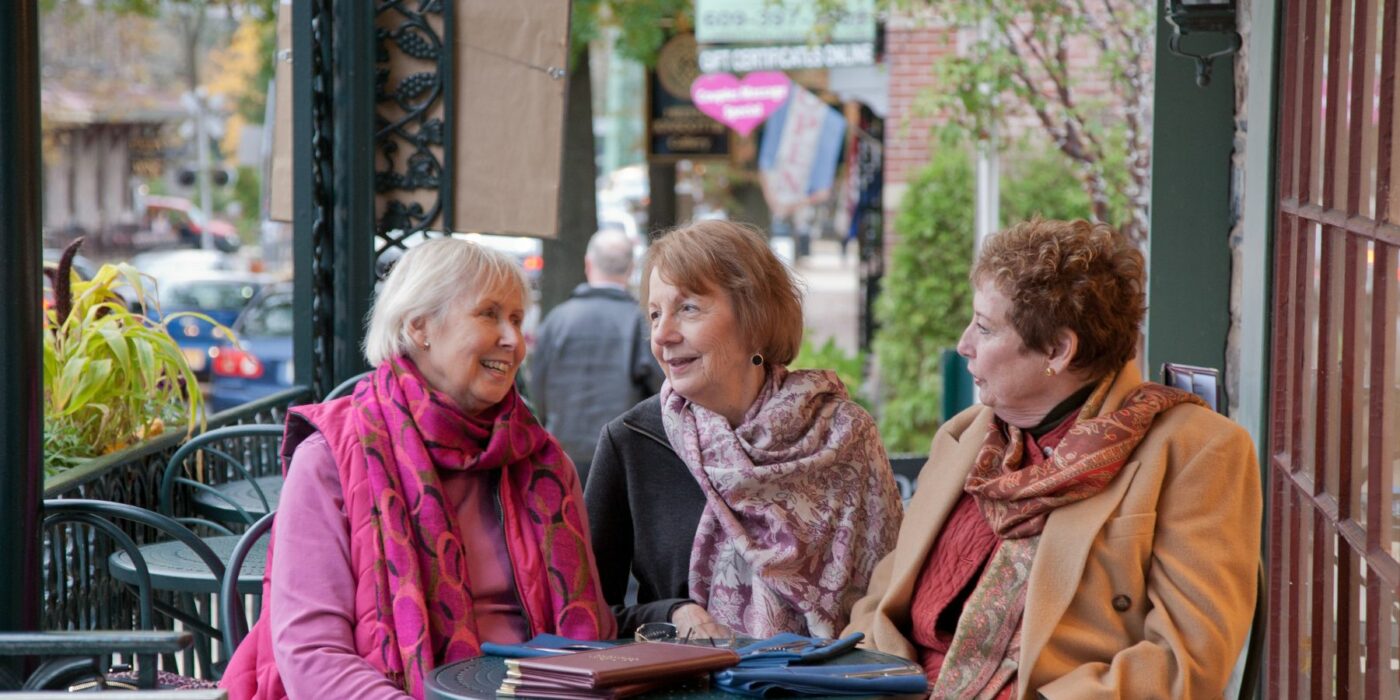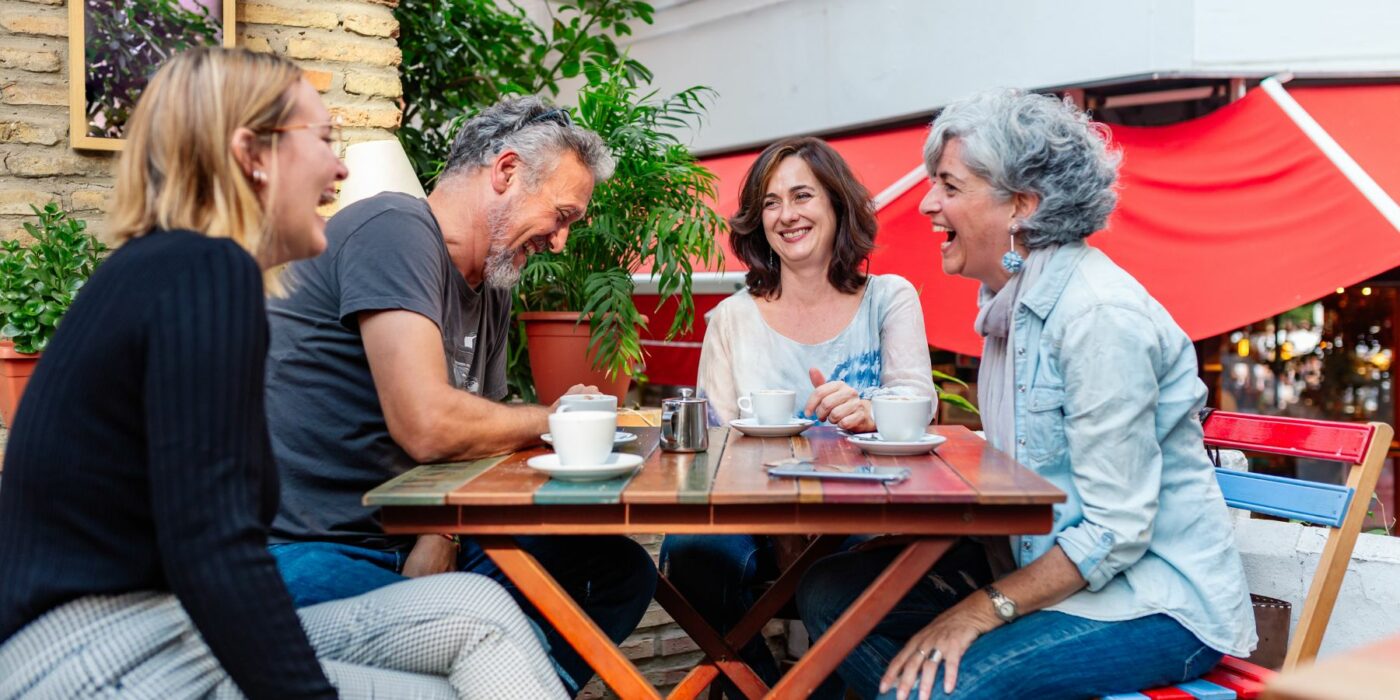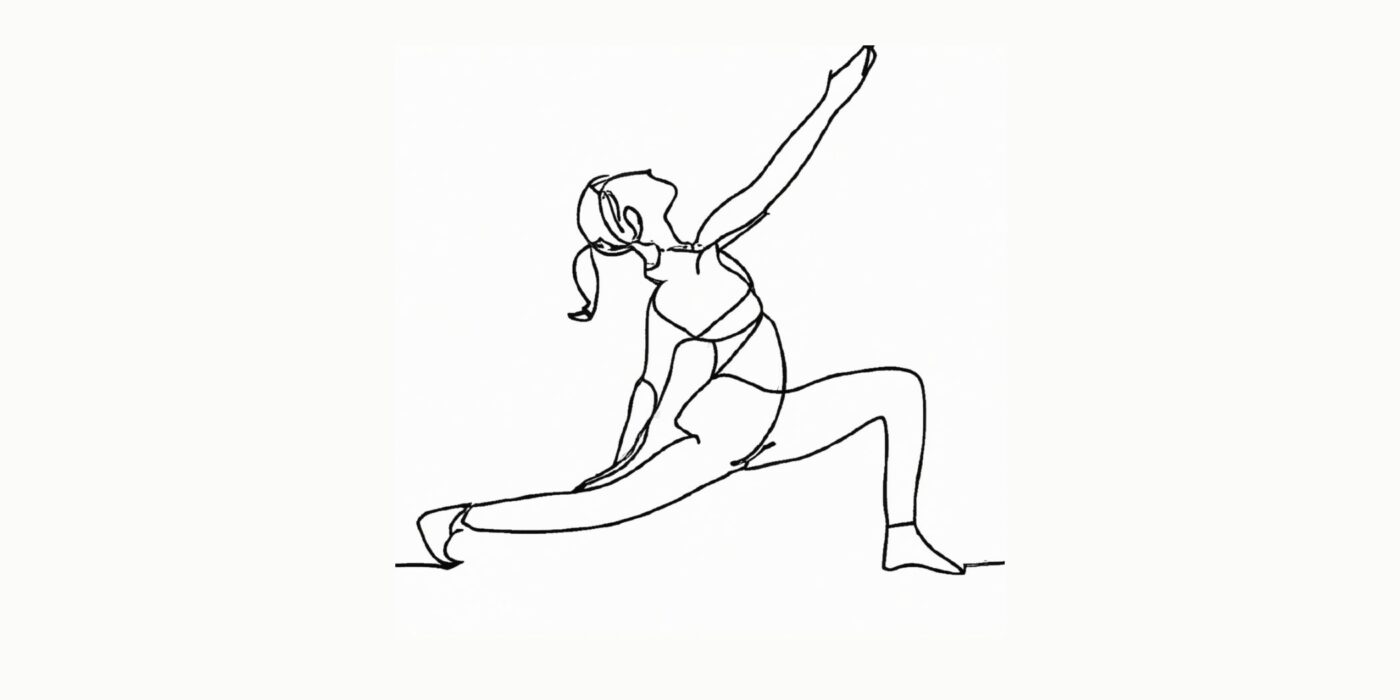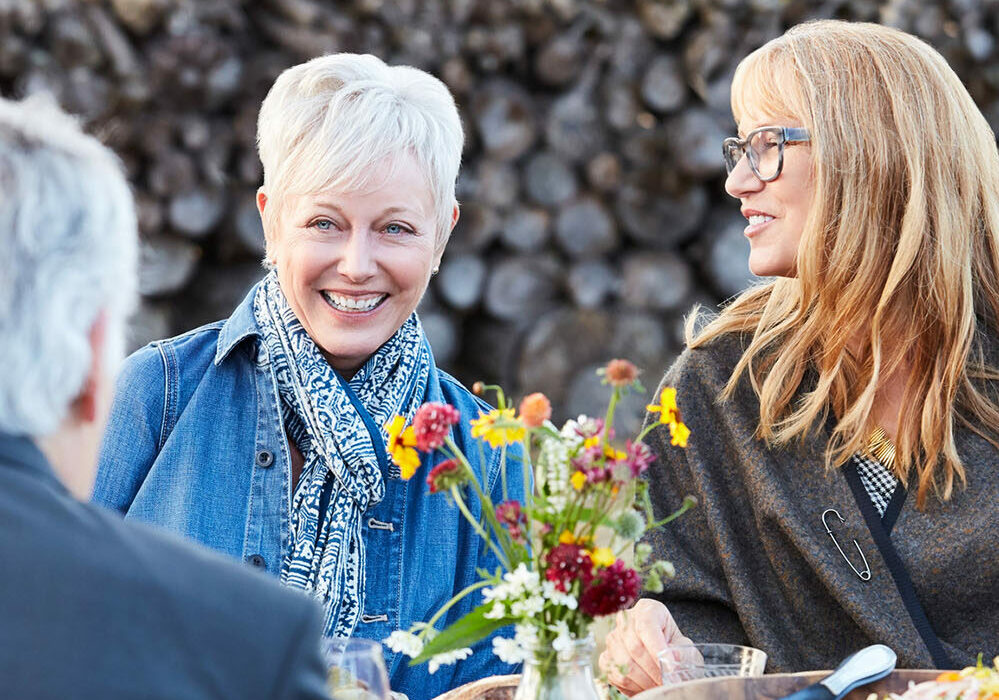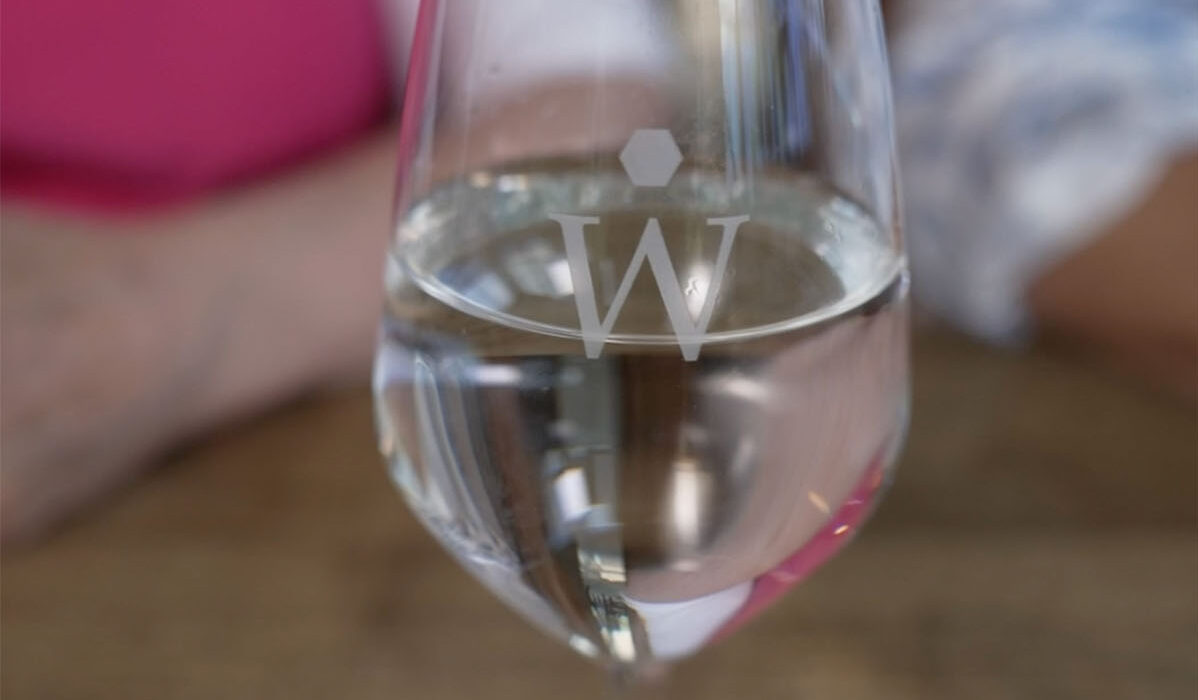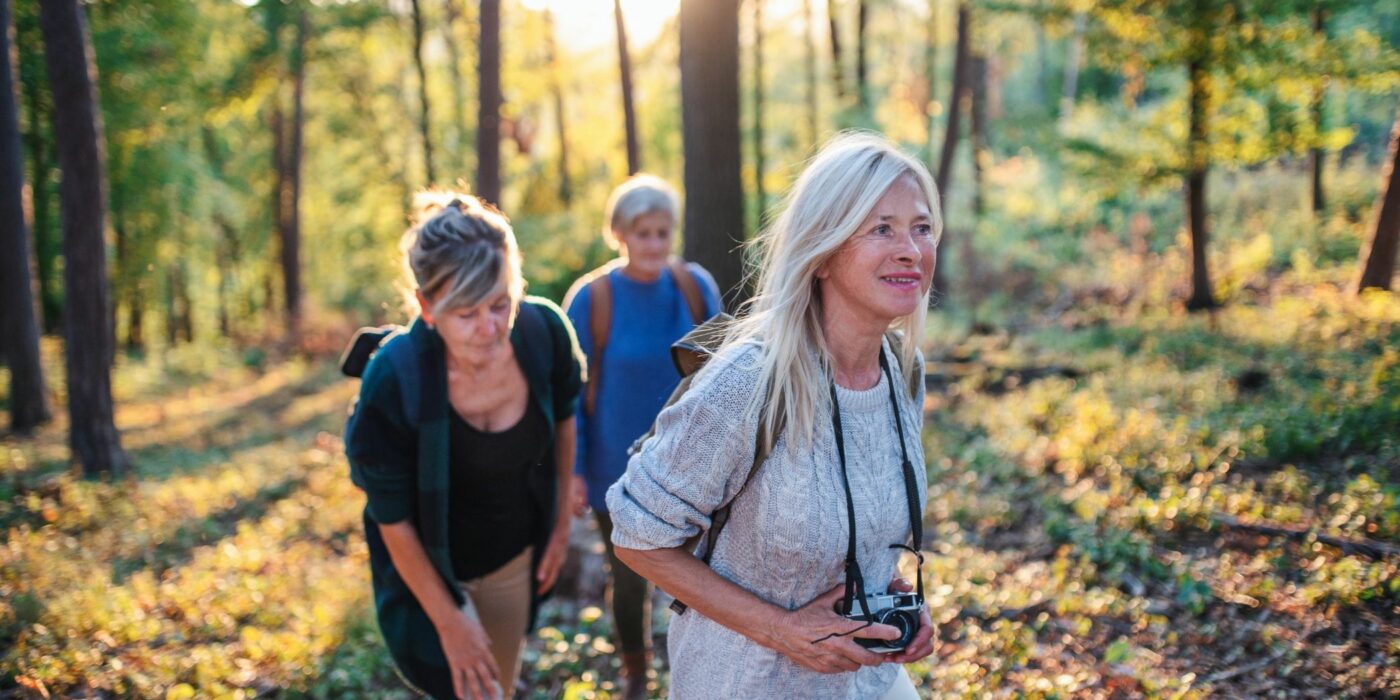Category: Healthy Aging
Moving Through Grief
Grief has many facets, and it shows up in our lives in various circumstances, many of them unexpected. Grief is a feeling that we all experience at some point in a life well lived. We may encounter it due to job loss, loss of a loved one, a treasured pet or loss of property, to cite a few examples. While there are tools professionals can offer us, each person’s grief journey is unique. It’s a bit like happiness because learning to grieve is as important as learning to be happy. They’re different sides of the same coin and both are powerful components of the human experience.
“Grieving doesn’t make you imperfect, it makes you human.” – Sarah Dessen
In North American society we aren’t encouraged to grieve for long; rather we are prompted to pause briefly and get on with life. Other societies create space for people to grieve and to help them heal in community. There’s no one way to be in this mystery of grief and sometimes we need professionals to help us navigate. Say you lost a job you loved. That situation requires grieving because you loved your job and it’s gone. There’s no shame in mourning the loss and feeling all the feelings that come with it. When we pretend that we’re just fine, we’re ignoring an opportunity to heal something and that pain, if not acknowledged properly, will stick around longer than it would if it was addressed.
“Grief is love not wanting to let go” – Earl A. Grollman
When we lose someone close to us, the void is so painful that we ask ourselves how we can go on living without them? Initially it feels as though the world stops and in a way your world does stop, so that you can acknowledge your true feelings and accept the loss. It’s unrealistic to think that we move on from grief, rather we get used to new circumstances. I love how American singer songwriter Andy Grammer honours his late mother. When he goes out for breakfast and sees women his Mum’s age in the restaurant, he offers to pay their bill and shares with them how it’s his way of keeping his Mum’s generous spirit alive. Isn’t that the most beautiful way to live with grief? We know that kindness is a powerful force that not only enriches the recipient of our acts of kindness, but we benefit as does anyone who witnesses it or anyone we tell about it. Honouring our loved ones to keep their spirit alive will look different for each of us. Think of the person you want to honour, think of their best qualities, and find some way to share those qualities with others through you.
The one thing we must acknowledge about grief is that it’s real, whatever we’re feeling is real and feelings don’t have an expiry date. Sometimes we hold on to grief because we’re afraid of who we will be without it or we’re afraid of experiencing more loss. But once we begin to slowly move back into life, we can take the spirit of our loved ones with us and keep them close by honouring them in our own special way.
“Be the things you loved most about the people who are gone” – Unknown
Let’s talk about the loss of freedom and independence as something we all grieve for. Even school children grieve at the end of summer before they get into the excitement of a new adventure once they get back to school. Similarly, as our children grow up and move out on their own, we call it “empty nest” but it’s really grief we’re feeling and it’s very real. We grieve when we give up certain things like having a big home to move into a lifestyle without as many responsibilities and with more time to enjoy ourselves. On the surface, especially to those in the foundation building years of life, this can look like living the dream but in truth we are surrendering a part of ourselves that we felt defined us as guardians of the family home, and we may not know who we are without that identity. While it’s important to acknowledge that this transition is challenging and that what we’re feeling is legitimate and perfectly normal, it’s also important to carefully merge into a new lane on this amazing road trip of life.
“What we once enjoyed and deeply loved we can never lose, for all that we love deeply becomes part of us.” – Helen Keller
What we can’t see because fear is blocking our view is that we are granting ourselves an opportunity for a new identity. We have more bandwidth in our mind for creative pursuits instead of worrying about eaves troughs and snow removal bills. I’m joking a little but there is so much potential to embrace in the third act of our lives. If our choice is to move into a community like Wellings, we’ll have a ready-made social life where we can make new friends, we’ll have the freedom to do what we want when we want. Because we’re not focused on all the chores we had as a homeowner, we can enjoy trying new hobbies and experiences for the fun of it. We’re free to create a new identity for ourselves, one that incorporates all our previous experiences with a hefty dose of courage because we’re embracing the unknown. It’s there, on the other side of fear, that our new freedom waits for us.
Here are a few parting thoughts to consider as we move through grief:
- Have compassion for yourself. Whatever you’re feeling is real, so be gentle.
- Get comfortable being uncomfortable. Nobody can accurately predict the future and as much as we would love to control it, we can’t. Accepting discomfort creates space for us to make mistakes and learn as we go. See tip #1.
- Stay connected with people you love and who are willing to be good listeners. Sharing what’s on your heart with someone you trust helps with healing.
- Move your beautiful body. We know that sitting for too long can be detrimental to our health, especially when we’re feeling down. Take a walk preferably in nature to elevate your spirits.
- Laughter, like kindness, is good medicine. Watch funny movies or television shows that make you feel good, read a lighthearted book, or spend time with someone who loves to laugh.

This Wellings blog by Kathie Donovan was exclusively written for Wellings Communities and appeared first on MyWellings.com.
Boosting Social Wellness through Casual Conversations
Welcome to ‘The Good Life with Nat & Kat’! Today, we’re exploring the transformative power of talking to strangers and its impact on our social fitness.
Nat & Kat, both self-confessed introverts, discuss their journeys and share insights on breaking the ice, building resilience, and fostering meaningful connections. From small gestures to heartfelt compliments, they reveal how small talk can open doors to fulfilling interactions and friendships.
They highlight the essence of a vibrant social life and its role in longevity, concluding with golden nuggets on maintaining a harmonious social environment.
Join us in this enriching conversation, share your thoughts, and let’s build a connected, supportive community together!
How Talking to Strangers Can Benefit your Social Fitness
How do you feel about small talk or talking to strangers? Are you good at it or do you dread it? Some people are gifted this way and find it easy to engage with someone sitting beside them on a plane or waiting in line for coffee. You can feel that they’re relaxed, and it puts whoever they’re speaking with at ease. We’re not all built this way and for anyone who feels socially awkward or shy, talking with strangers can be a challenge. The great news is that when we’re prepared, small talk is easy and sometimes it magically transforms strangers into friends.
“Friendship begins with small talk; then grows into a long and deep conversation, the next thing you know you care so much.”
-Unknown
I used to feel overwhelmed when I thought about all the strangers I was going to encounter at networking events. I had all the same feelings you likely have if you feel socially awkward like I do. What am I going to say? How do I start a conversation with someone I don’t know anything about? Are these people going to judge me?
Now I know that yes people are going to judge me because that’s how we’re wired as human beings. Until we get to know someone and discover what we have in common, our brain tells us to be afraid. What I have found though with years of networking behind me is that we have more in common than we think we do. It’s a matter of engaging and we do this by asking questions of others and sharing information about ourselves. I’ll have some tips that I’ve found useful on this topic for you a little later.
There’s science behind why it’s beneficial for us to talk with strangers and engage in small talk but without looking to science we can say that when a stranger wants to chat with us, it’s likely because they’re curious, we look interesting or both. Just a few questions and answers shared, and we know whether this is a relationship for the moment or one that could evolve into a friendship. Either way we’ll learn something, right?
“Be brave enough to start a conversation that matters.”
-Margaret Wheatley, Organizational Consultant
Research on small talk shows that we underestimate how much we’ll enjoy conversations with strangers and how much those conversations can nurture a feeling of connectedness with other people, which is key for thriving, especially as we age. A study conducted at the University of Michigan shows that engaging in small talk can make us feel smarter, happier, and healthier. A surprising result was that casual conversation contributes to a lower risk of heart attack. It stands to reason because we’re connecting with other people, which inherently has a lot of benefit, at any age. It bears repeating that as human beings we are made for socialization and not isolation, so it’s important that we push ourselves beyond what’s comfortable or familiar, so that we can expand our knowledge base, social circle, and our own courage.
You’re only one conversation away from learning something new whether it’s about a family member, an acquaintance, or a community member. I remember recently sitting in a small group of Wellings members, after my presentation at Wellings of Picton. The woman beside me and I struck up a conversation; I learned that she had experienced a car accident a few years ago that impacted her life and her move to Wellings gave her new friends and a community that cared. She was excited about the music we were about to listen to and said that she was looking forward to kicking up her heels, even if only figuratively. A new Wellings member joined the group and introduced herself as Flo, spelling her name with a wide smile; she started asking questions to get to know the people in the group. She joked that her grandson loved Wellings and said that this type of community would be great for young people too. I think he’s on to something. Anytime we can create community and connection we are alleviating some of the stress we all feel in our daily lives, which is magnified when we’re isolated and lessened when we’re in community.
“Smile at strangers and you just might change a life.”
– Steve Maraboli, Behavioral Scientist
It’s important for us to initiate connections with our family, our peers, friends, and our community members, some of whom we may not know yet. While it may feel uncomfortable initially, with practice we become confident and reaching out becomes easier.
Here are a few tips I’ve found helpful when it comes to being prepared for conversation.
- I like to open conversation with a compliment whenever possible. It creates an immediate connection; make sure it’s sincere.
- Look for commonalities in whatever situation you’re meeting this person. Make sure you’re curious and have a genuine interest in them.
- Have a few topics of conversation in your pocket, so you can talk easily. In Canada weather is a great topic to open with and it seems everyone has an opinion. I like to keep it light and focus on what’s good.
- Talk about why you’re there, whether it’s a party, a meeting, or some other social event.
- Ask open ended questions rather than questions requiring a yes or no answer.
- Ask them to tell you a little bit about themselves.
- Genuinely listen to their answers and demonstrate it by using verbal and non-verbal feedback like nodding your head and following up with another question.
- Wrap up graciously by saying something like “it was a pleasure to meet you” or great chatting with you” and then add that you have somewhere to be or that you’re going to chat with someone else.
I think it’s important to be positive and enthusiastic when we’re getting to know someone. Small talk is the first step in figuring out whether we’re aligned with a new person; it’s also a great tool to deepen a relationship with family or community members without things getting sticky. We don’t have to tell our life story right out of the gate. While we all have an interesting story to share, we can save that for a time when we feel it’s appropriate to go a little deeper with someone, once we get to know them.
What’s really worked for me is practice. The more I’m prepared before I initiate conversation, the more relaxed I feel, and the more I enjoy these encounters. There are so many things we can learn, so many beautiful people we can get to know and so many wonderful stories and shared experiences to uncover when we take a chance and open a conversation, simply by asking “how are you doing?”

This Wellings blog by Kathie Donovan was exclusively written for Wellings Communities and appeared first on MyWellings.com.
Unlocking the Epic Life: Active Living vs. Other Options for the 55+ Community
As we gracefully age, the concept of ‘home’ evolves. It’s no longer just a place to rest; it becomes a sanctuary of health, wellness, and empowerment. At Wellings, we understand that our 55+ community desires more than just a roof over their heads. They aspire for an epic life — full of opportunities, diverse activities, and minimal responsibilities. But how does this differ from other arrangements like long-term care or retirement living with respect? Let’s dive in.
What is the Active Living Concept?
Peter Attia, MD, and longevity expert says, “Exercise can improve insulin sensitivity, boost metabolism, cardiovascular health, enhance cognitive function, and contribute to overall well-being.”
You are independent, and you want to stay that way. You want to avoid living in retirement, where health care becomes a daily routine. Well, there is an alternative. Active living prioritizes physical activity as part of your daily routine, honoring your goal to keep your mobility and health for as long as possible. The goal is to get people moving more often. Exercise, nutrition, sleep, and mental health are keys to living a well-rounded and healthy lifestyle as we age, according to Dr. Attia. Listening to the goals of our members ( seniors) over 55 years of age has inspired us to create an environment that encourages an active way of life regardless of the mobility levels within the community. As a result, we see fitness levels improve, more social interaction, and better eating habits. Keeping active starts with a goal for your future activity needs. If you want to be able to walk up a hill, carry a grandchild, get in and out of a car, or take a trip somewhere, you need to train for it, and there is always time to start.
What is an Example of Active Living?
Imagine starting your day with a brisk walk. You feel your heartbeat, the fresh air on your face. You feel alive. 30 minutes of fast activity is all you need to improve your cardiovascular health and mood daily. You may only sometimes recognize active living as deliberate, but even parking at the furthest end of the parking lot and walking to the front door naturally increases your activity level. At Wellings, we always look for ways our members can get more active without considering additional exercise. Gardening, yoga, stretching, dancing, lawn bowling, and even billiards keep your blood flowing, improve your balance and exercise the mind. Get active and live life the way you want to.
What is the Definition of Healthy Active Living?
Healthy active living is a lifestyle choice that combines regular physical activity, a balanced nutritious diet, sufficient sleep, stress management, and maintaining social connections outside your Family. It’s a holistic approach to life that has the potential to significantly improve quality of life, especially as we age and for our 55+ community.
What are the ten benefits of an Active Lifestyle?
Peter Attia, MD and author of Outlive, The Science and Art of Longevity, often emphasizes the numerous benefits of an active lifestyle. In his world, prevention is the focus rather than waiting until you need to see a Dr. to treat a disease or ailment. If you have healthy lifestyle goals for aging, an active, healthy lifestyle must be a priority. Most of us want to live a long, healthy life, but to do this, we need to start paying attention to our habits and lifestyle. Does it support our long-term goals, and if not, what can we change now to give us the best chance for a long, healthy way of life? This means that on top of regular exercise, optimizing your good food intake, breathing in the fresh air, de-stressing life, and working hard to ensure your muscles stay strong become a priority. He emphasizes there is always time to start.
Some benefits include:
1. Improved Physical Health: Reduces the risk of chronic diseases and better management of blood sugars.
2. Enhances Mental Health: Boosts mood and alleviates some symptoms of depression.
3. Promotes Social Interaction: Decreases sense of isolation, betters mood, and provides more opportunities to meet and connect with people.
4. Boosts Immunity: Exercise helps improve bodily functions, including the immune system.
5. Enhances Mobility: It keeps your body flexible, maintains balance, reduces the effects of arthritis, and better equips us to handle challenging terrain.
6. Increases Longevity: A healthy lifestyle is directly proportional to a longer life expectancy.
7. Improves Sleep: Physical activities help you reduce stress, fall asleep faster, and make your sleep more profound as long as you raise your heartbeats!
8. Sharpens the Mind: Aids in keeping your cognitive function sharper as exercise and nutrition take center stage,
9. Fosters Independence: Physical well-being allows you to be more self-reliant and independent, especially as we age.
10. Elevates Quality of Life: You’re likely to enjoy life more when you’re physically active and socially engaged.
Active Living vs. Independent Living vs. Long-term Care
Active Living (Wellings): A community inspired by energetic and vibrant 55-plus adults. Usually, health care is not offered, and activities may be community-led. Amenities vary by location but typically include a full kitchen and in-suite laundry.
Independent and Assisted Living: Traditional retirement living offers various care levels, including assisted and memory care. It addresses many levels of care that may require qualified healthcare professionals in its administration. It often comes with three daily meals, housekeeping, and organized activities.
Long-term Care: For those requiring advanced medical care and daily assistance beyond what a traditional retirement home can provide.
How Do You Know What You Need?
If you aren’t sure what the differences are in the various living options for seniors, it is essential to do some research. Get familiar with the industry jargon such as independent vs. assisted living, 55 plus living, memory care, and long-term care. Your doctor and family can help you determine what care you may require in the coming years. Some people are on the cusp of needing some daily care and prefer to choose 55 plus living and accessing their local care association to visit the residence as required, such as a blood pressure check once a month or diabetic foot care. These independent seniors can cook for themselves, may still drive, and can carry on mostly without supervision. Others realize that they don’t want to cook and need minimal care now but don’t want to entertain the idea of moving again shortly and may choose a traditional retirement home. Remember that selecting a conventional retirement home when you don’t truly need care usually results in aging more quickly and paying for health care services you won’t use. Fifty-five plus communities offer activities and meals with a more vibrant and active feel. We see various mobility and mental acuity levels, but people connect with busy people. These communities, such as Wellings, are perfect for transitioning between your large family home and a traditional retirement home with care.
Any good General Manager or community leasing representative should be able to outline the differences and ask the right questions to determine the best fit for you regardless of what community you choose.
You don’t need external care daily?
Active Living at Wellings may be the perfect fit if you don’t require daily medical assistance.
Choosing the right community is crucial for your well-being, and we encourage you to research. Make a list of your goals for yourself as you age. Is the new home you are considering going to get you closer to your goals? If you want to be more social or less isolated, look at the social programs offered. If you’re going to stay active, look for fitness programs, walking trails, or nearby paths.
Visit your top 3 choices. Is everything scheduled, or are you free to choose when and where you eat, when you come and go, and how many visitors you can have? We recommend you watch how the staff interacts, test the food, participate in the activities, and even do a trial stay. You can visit as often as needed to make yourself more comfortable with your final choice. At Wellings, we provide you with the best setting to live an active and fruitful life, where every day is an adventure, an opportunity for continued growth, renewal, and re-energizing. Pick up hobbies you loved and never had time for, and connect with people who love living in retirement and are happy to share their life stories when asked. Fifty-five-plus communities are usually less expensive than traditional retirement homes and are a good choice for adults 55-plus who don’t need care but want to live maintenance-free and be more social.
The Magic of Shared Meals: Exploring Food & Friendship at Wellings
Join Nat and Kat on a delightful journey into the heart of Wellings, where food and socializing intertwine to create enriching experiences. In this episode of, The Good Life with Nat and Kat, we’re serving up more than just delicious recipes – we’re also celebrating the warmth of shared stories, the nourishment of companionship, and the exhilaration of trying new things.
At Wellings, we believe there’s more to dining than just eating. There are no designated food times, instead we foster an environment where food serves as an invitation to mingle and connect, reminiscent of our shared human experiences. From casual pub food, enticing pizzas, to elevated profile dishes, our chefs are excited to offer something unique to our members, making dinner not just a meal, but an event.
So, grab a cup of tea, invite a neighbour, and come down to the Atrium. Together, let’s continue to grow, learn, and live life to the fullest. Click here to enjoy the video.
Living Fully: Nourishing a Healthy Mindset
Hello everyone! Welcome to The Good Life with Nat & Kat! Today, we’re diving deep into the classic debate – are you a glass half full or a glass half empty kind of person?
As we wade through these waters, we hope to redefine how you perceive your glass. We’ll talk about optimism and pessimism, and how there might be another way – perhaps a way to just fill the glass more.
Join us as we share some actionable tips to nourishing a healthy mindset. Get cozy, grab your favourite beverage, and let’s embark on this enlightening conversation together.
Let’s jump right into it! Click Here to Watch the Video.
The Importance of Having a Healthy Outlook on Life
Are you a glass half full or a glass half empty person? We’ve been conditioned to see glass half full people as optimistic and glass half empty people as pessimistic but why not just put more water in the glass to fill it up? I believe we all have some pessimism, and some optimism in us and it’s our choice to decide how we want to see what’s in the glass. Having a healthy outlook on life means accepting that as humans, we experience the full spectrum of emotions, and we’re responsible for our approach and our response to what happens on this life adventure.
I consider myself to be a practical optimist. I choose to be hopeful and to have faith that even when things appear to be tough, there’s some growth coming out of it. I may be delusional about what’s possible but I’m owning it because I believe we are all capable of great things. I believe we are all capable of calling on courage to move through fear and we are all capable of calling upon kindness and compassion to override judgement of ourselves and others. Despite how I was conditioned to see life, I chose to flip the script and see possibility instead of limits. Every day now I choose to feel empowered instead of feeling like a victim. While I can’t single-handedly shift outcomes for the world, I can shift the outcome for myself and for situations in my corner of the world in part by having a healthy outlook on life.
No doubt, there’s a lot more uncertainty in the world today. I love to understand what’s going on in my life and sometimes, when I don’t have all the information, my mind will fill in the blanks with some worst-case scenarios to prepare me in case things go sideways. That’s because as humans, we’re wired for survival and our thoughts set up imaginary circumstances to protect us. But if those scenarios have no basis in fact and are not true, it’s up to us to manage them wisely.
Fear was so predominant during the Pandemic and in its wake we all have many unanswered questions. Unfortunately, we may never get the answers we’re looking for because some questions don’t have definitive answers. It’s best to accept that uncertainty is part of life and get comfortable being uncomfortable. It’s possible to be hopeful and optimistic without having all the answers.
Because we are wired for survival, it explains why there is so much focus on bad news and why we prefer to stay in our so-called comfort zone. It may not really be comfortable but it’s familiar and familiarity feels safer than the unknown does. When we embrace uncertainty and accept that change is not a bad thing but a sure thing, we open ourselves to a life filled with possibility, where we can choose not to be so hard on ourselves. Having a healthy outlook on life means that we’re softer and more accepting of ourselves and others. It means that we can make space in our daily life to care for ourselves: body, mind, and spirit. We choose to speak softly to ourselves and others instead of being critical. We can give ourselves permission to celebrate whenever we choose courage over fear, and we allow ourselves to make mistakes. We recognize that in fact we can do many things our thoughts previously told us we couldn’t do.
Here are some ideas to consider when it comes to nourishing a healthy mindset.
- Choose to invest your time with people who make you feel energized not drained.
- Watch what you consume in terms of media. It’s important to be informed about what’s going on in the world but being addicted to news can be toxic.
- Be open minded and recognize that every person has their own experiences and their own viewpoint. We don’t all have to agree but we must be respectful.
- Watch complaining in yourself and tolerating it in others. Complaining is a sign that something needs to shift and it’s really a statement about what we don’t want. Determine what you do want and take some small action in that direction.
- Don’t allow fear to lead, instead call on courage to proceed when things feel uncertain.
- Make some form of exercise part of your routine. It helps with freshening the mind and the body.
Let’s go back to the glass half full analogy for a parting thought. If you notice someone in your life seems to have a glass half empty, pour some of your goodness into their glass by doing or saying something kind to comfort them. If you feel that your glass is half empty, open yourself to receiving support from someone who may have a very full glass to share. Being available to receive from others is really a gift we give to them when we’re in a time of need and it takes a healthy outlook on life to recognize that when we receive kindness from others we’re filling their glass too.

This Wellings blog by Kathie Donovan was exclusively written for Wellings Communities and appeared first on MyWellings.com.
Unwrapping Joy Snacks
Discover the transformative power of joy in this video blog! Explore the wonder of Spring and Summer, and uncover how these simple moments of joy can boost your mood. Join us on a journey to understanding how daily encounters and experiences can trigger happiness, boost our mood, and infuse our lives with positivity. From nature walks to the art of joy detection, learn to infuse each day with gladness — one joy snack at a time!
Click here to watch the video.
Joy Snacks for Pleasure and Longevity
What lights you up about Spring and Summer? After feeling like we’ve been through three winters (LOL) Spring’s arrival helps us to feel lighter. I like to call it the season of hope because there’s so much possibility all around us: in blossoms on the trees and flowers poking out of the ground. It’s so easy to be impressed by Mother Nature when the earth is smiling this way.
I love walking the trail near our home year-round but especially at this time of year. I welcome the sound of a stream rushing, birds singing, the different shades of green; creatures moving through the woods. These are all what I call joy snacks: the small moments of gladness that remind us of all the good there is to appreciate in life. Perhaps you experience something similar on your walks or as you move through your day. I sure hope so.
I think of joy snacks as a valuable ingredient in the recipe for sustainable happiness and here’s why. It’s all about the good feelings we experience when we encounter someone or something that makes us feel joyful. Think babies smiling, someone complimenting you or someone holding a door open for you. These everyday encounters cause our brain to release neurotransmitters or feel-good chemicals into our nervous system. There’s dopamine, known as the feel-good hormone and serotonin, often called the happiness chemical. Easy breezy activities like showing appreciation or kindness, receiving a compliment graciously, going for a walk, or smiling at someone all invite more production of these feel-good hormones and help lift our mood.
“Smiling can trick your brain by elevating your mood, lowering your heart rate, and reducing your stress. The smile doesn’t have to be based on real emotion because faking it works as well.”
-Dr. Diana Samuel MD
Joy is a magical thing and sometimes it’s challenging to believe we deserve it. We’re so conditioned to think that life is difficult, and joy is frivolous. We must become intentional about joy and teach ourselves to be clever joy detectives, packing as much of it as we can into every day. Let’s talk about exercise as a joy snack instead of a chore. Exercise encourages us to focus on the present moment; the experience takes our mind away from thoughts that might make us feel fearful or stressed and the magical piece is that we always feel good after exercise. Instead of looking at exercise as a “got to do it thing,” why not think of it as a “get to do it thing” because you know there’s joy involved. This is especially true when we exercise outdoors in nature and share the experience with someone else.
“The joy we feel has little to do with the circumstances of our lives and everything to do with the focus of our lives.”
–Russel M Nelson
Our ability to experience joy is always there but it may very well be buried to protect ourselves from feeling hurt or disappointed. I understand that because before I became a joy detective, I felt the need to protect myself but not any longer. I’ve learned that joy helps to expand my perspective on life instead of living with a limited perspective, which happens when we’re focused on negative and fearful thoughts about ourselves and our life circumstances. So, joy is medicine that helps us lift our outlook on life to be more positive and optimistic.
In a recent chat with a woman at Welling, she confessed that meeting so many new people in the community made her feel uncomfortable because she couldn’t remember everyone’s name. I suggested she start greeting people by saying hello, friend. Her face lit up in recognition of the fact that folks in her new community really are her friends and it took the pressure off because now she doesn’t have to feel uncomfortable about remembering everybody’s name. That was a tasty joy snack.
There is so much benefit to being a joy detective. Not only do we experience something that feels good, but when we feel joy, we’re inspired to share it with others. We become more open minded and curious, our creativity expands, we spend less time focusing on what’s wrong because we’re looking for what’s going well. We’re more connected to other people, which improves our social fitness and when we’re joyful, we become more resilient, which sets us up for more positive experiences in the future both in our thoughts and the activities we choose to participate in.
I love to share joy snacks with other people, whether it’s having a meal with friends or surprising fellow walkers on the walking trail I mentioned earlier. I leave quarters on the posts of a little bridge that goes over a stream. I imagine someone seeing the money and feeling joyful, as they put it in their pocket, thinking about what joy they can create for themselves or imagining how they might pass the joy along to someone else. So, my challenge to you is to become a joy detective in your own life. Look for ways to pack as much gladness into your day as possible and when you can, offer a joy snack to someone else. You’ll make their day and light yourself up as well.

This Wellings blog by Kathie Donovan was exclusively written for Welllings Communities and appeared first on MyWellings.com.



